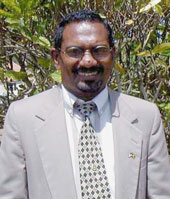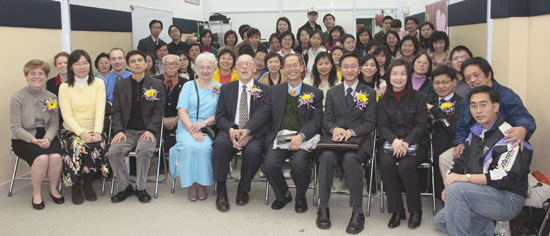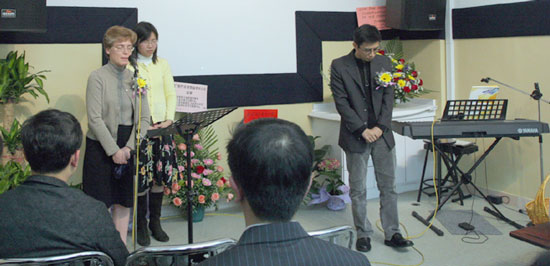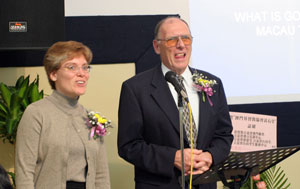April 7, 2006
|
Okay, you know we are talking about Revelation here.
I just read an article from Peacemakers about the toll conflict is taking on the church and on pastors. Conflict has hindered or ruined many churches’ ministry. It has contributed to burnout or “run out” for pastors. In one denomination, they have 1,500 pastors per year check out of ministry, all because local church leaders (both pastors and lay leaders) seem unwilling or ill-equipped to address internal issues.
That moved me to revisit the messages the Lord gave the seven churches of the Revelation. The messages and calls to action are relevant for today. See where your church fits, and what God’s call is for your life.
Church 1: Ephesus was a doctrinally sound church. Solid on truth. But the Lord said they lost their first love, their reason for existence. The Call: Repent.
Church 2: Smyrna was a poverty church, in affliction because of its location and circumstance. The Lord did not rebuke them but encouraged them. The Call: Be faithful and hold on.
Church 3: Pergamum was located in a difficult, sinful community. They did not have biblically sound teaching in their church. They held to some strange things. The Call: Repent
Church 4: Thyatira showed evidence of moving ahead spiritually. But they were at a crucial point. They tolerated a very ungodly, sinful woman to have say over what happened in the church. The Call: The wicked should repent; others should hold on.
Church 5: Sardis had a reputation for and self-perception of being alive, but they were truly dead. This shows the need for an objective evaluation of us and not just our own. The Call: Wake up, repent, and obey.
Church 6: Philadelphia was faithful, battle-worn, and weary. They were commended and reminded of God’s promises. The Call: Hold on.
Church 7: Laodicea was lukewarm. They weren’t blatantly sinful nor spiritually sound and productive. They were blinded to their condition as well. The Call: Repent
Notice the consistent call God is placing on churches: REPENT. As I work with cluster leaders who are intervening with churches and as the Bishop receives numerous communiques from various places, it is clear that sin, gossip, powerplays, control, etc. are conditions hindering many of our churches. Tolerating sin while neglecting truth is commonplace. And the call is for repentance. Otherwise, the Lord will take action to remove the church from existence.
I implore you to examine your own church. Better yet, do a Natural Church Development (NCD) survey or use some other objective tool to assess the condition of your church. Then take the appropriate actions in response to God’s call.
This summer, it is the desire of the Bishop (and also mine) to do further training with the cluster leaders, that they might in turn help pastors better learn to deal biblically with conflict. We also want to examine how to create an atmosphere in which it is normal to handle conflict this way.

 When you call Pat Jones or me, you will be introduced to a new voice. That voice belongs to Erinn Caley, who became the Administrative Asst for Pat and me. Erinn graduated from Huntington College in 2003 and served two years in Japan teaching English. She is a gifted writer and photographer, and posseses computer skills that will be very valuable for this position.
When you call Pat Jones or me, you will be introduced to a new voice. That voice belongs to Erinn Caley, who became the Administrative Asst for Pat and me. Erinn graduated from Huntington College in 2003 and served two years in Japan teaching English. She is a gifted writer and photographer, and posseses computer skills that will be very valuable for this position. Jamaica Annual Conference was held March 15-19, using the theme “Healthy Churches–God’s Plan for Growth.” The meetings were held at the Malvern Campground, with the large final service held at a Missionary Church camp outside of Mandeville.
Jamaica Annual Conference was held March 15-19, using the theme “Healthy Churches–God’s Plan for Growth.” The meetings were held at the Malvern Campground, with the large final service held at a Missionary Church camp outside of Mandeville.

 “The people who’ve been attending worship services at Living Stone are a variety of mature Christians, new Christians, and non-Christians. Pray for our staff and especially for Pastor Carlson and Michael (our local co-worker) as we seek to meet their broad spiritual needs.” (The photo on the left shows Jana translating for Carlson Becker.)
“The people who’ve been attending worship services at Living Stone are a variety of mature Christians, new Christians, and non-Christians. Pray for our staff and especially for Pastor Carlson and Michael (our local co-worker) as we seek to meet their broad spiritual needs.” (The photo on the left shows Jana translating for Carlson Becker.)